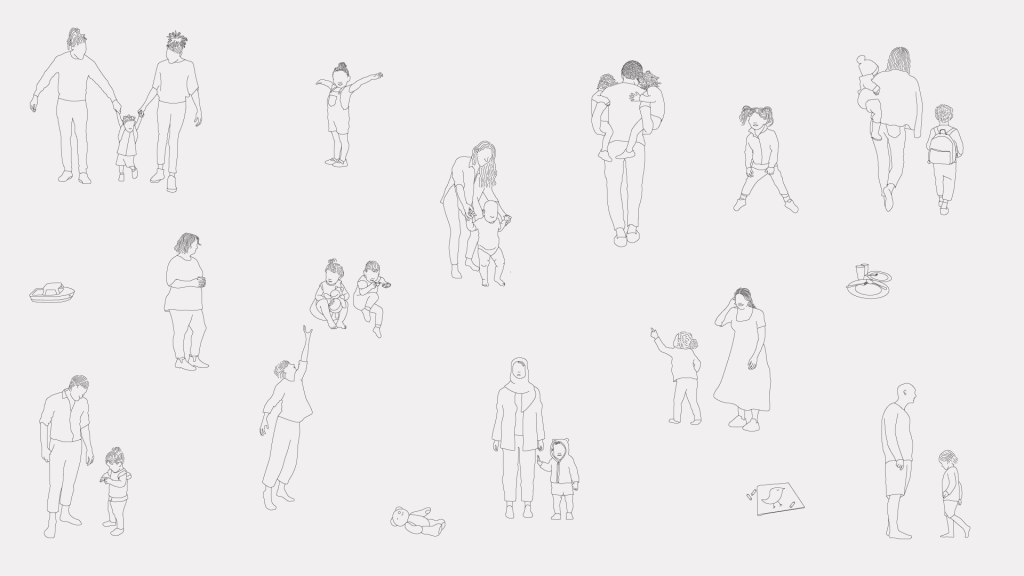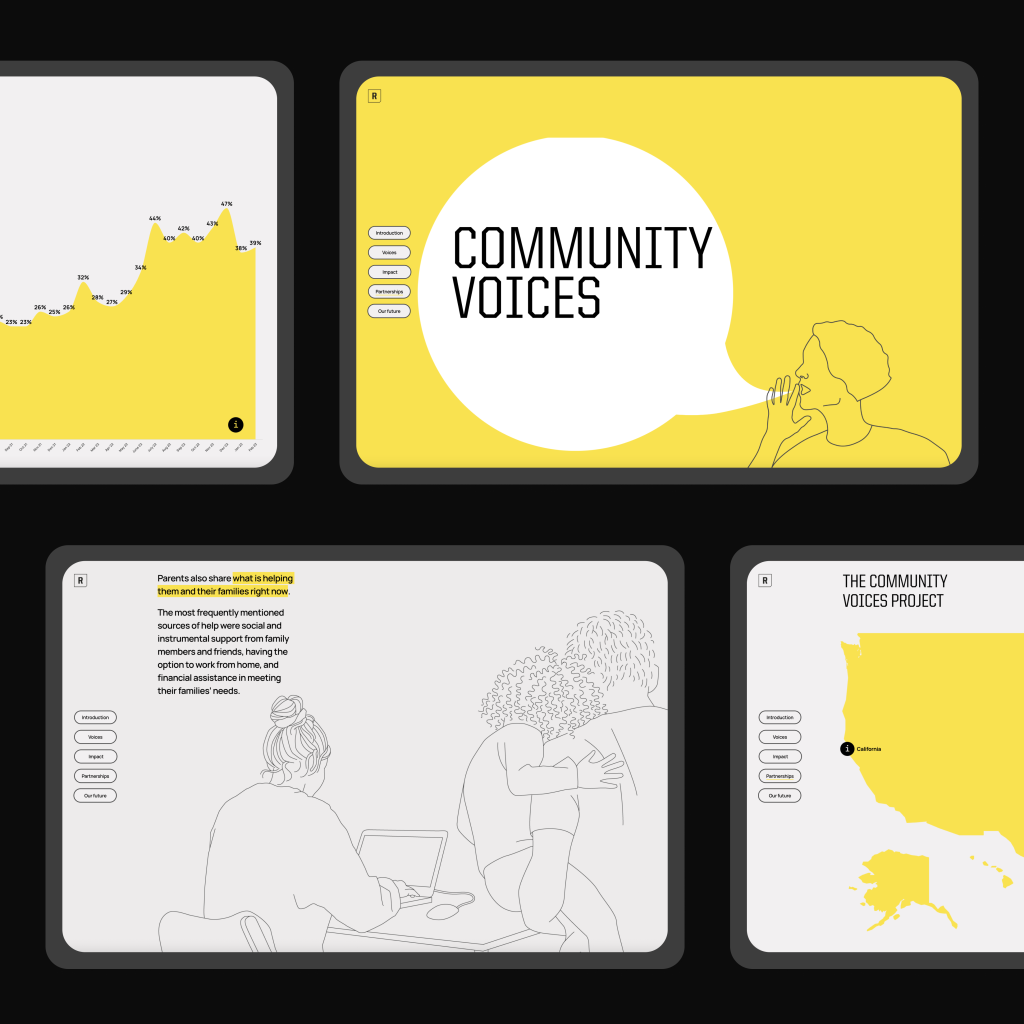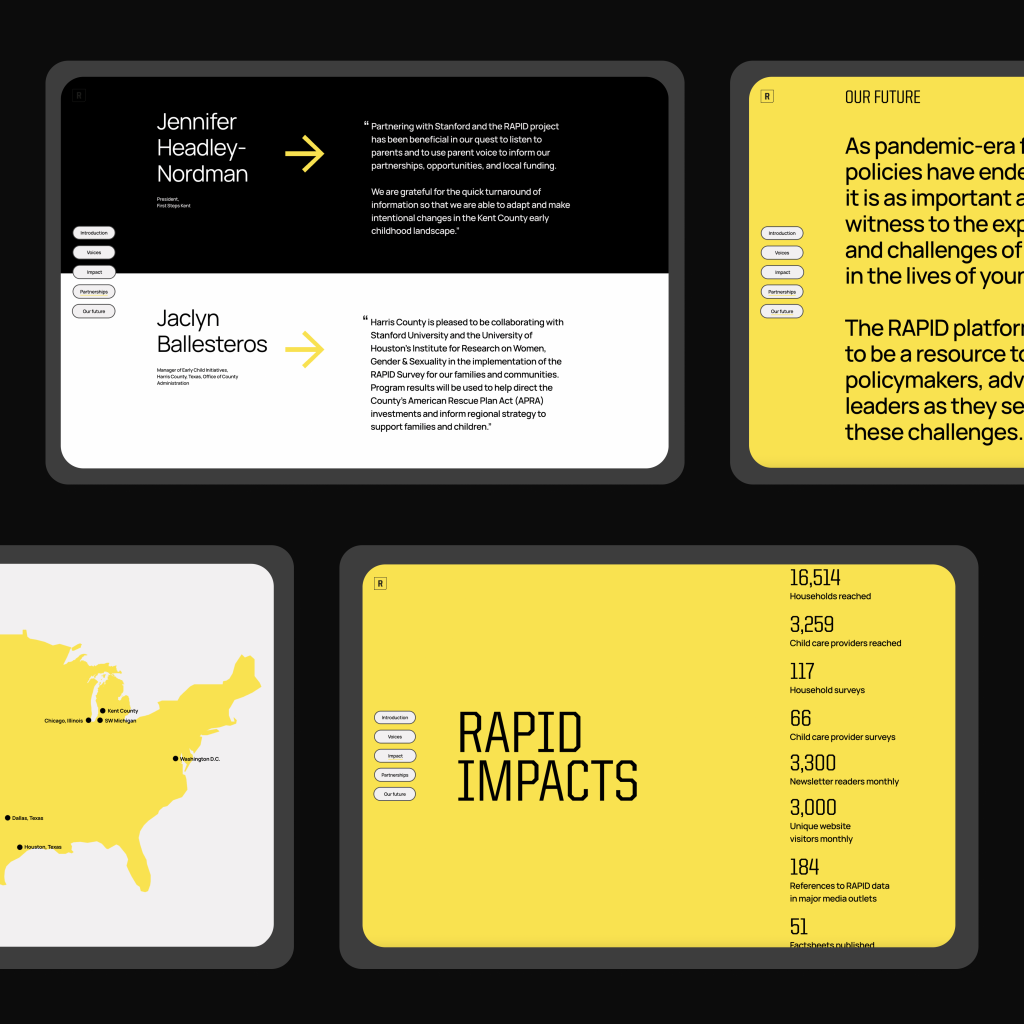
When the COVID-19 pandemic arrived in the United States, few of us were prepared for the changes that would occur in our daily lives. In a matter of weeks, workplaces, educational settings, family life, and whole communities were dramatically transformed …
Philip Fisher, Joan Lombardi, & Nathaniel Kendall-Taylor – first RAPID article)
In late March 2020 we started working with researchers at the Center for Early Childhood at the University of Oregon (the team later transferred to the Stanford Center on Early Childhood). They were working on research and tools to support children, families, caregivers and practitioners – all aimed at better early years development.
The COVID-19 pandemic had begun just a few weeks earlier and there was little data around its impact.
However, it was already clear that households with young children were being hit especially hard: reports on their wellbeing were documenting troubling increases in difficulties across a range of areas. RAPID started with the aim to monitor children’s socio-emotional wellbeing, household economic security, family physical health, early learning and childcare, basic household needs and caregiver mental health. It was important to rapidly create an easy-to-share, open platform to publish research and findings and inform policymakers powerfully.
We quickly created a visual identity that included some personal elements, to ‘humanise’ the data, and a set of illustrations to accompany the findings. The style we developed is minimal but friendly, with a ‘straight-to-the-point’ attitude.

For speed, the project began with a Medium page that included articles, interactive data visualisations, illustrations, and – more importantly – quotes from parents and caregivers who have been struggling to support their families and themselves. Later on, we designed and developed a more sophisticated website to deliver the latest findings, data and trends and access to the survey.
Today, the RAPID project has had a tremendous impact on policy-making in the US: millions of dollars in emergency relief funds were allocated to the Oregon early childhood workforce to meet their basic needs, informed by RAPID data. RAPID data on hunger was cited at the White House Conference on Hunger, Nutrition, and Health and in related meetings with policymakers on Capitol Hill. The passage of the federal Student Loan Forgiveness Program included specific provisions for the early childhood workforce, informed by RAPID data on the workforce’s high burden of student loan debt.
Since its inception, RAPID has been listening to more than 17,000 parents and caregivers across the US and has achieved more than 3,000 monthly newsletter readers. To celebrate the project’s three-year anniversary, we designed a separate storytelling microsite that outlines their goals and challenges and includes the latest data and updates.


We have also recently created an interactive ‘storybook’: a collection of parents’ voices and stories, reflecting on their experiences, and highlighting their fortitude and resilience in what have been challenging times – Parent Voices: A Storybook of Parent and Family Resilience from the RAPID Survey.
As the COVID-19 pandemic is considered to be ‘over’, pandemic-era policies and financial relief have ended and the costs of everyday items have increased. In a scenario where families with young children are very much still struggling, the RAPID project is more necessary than ever.
